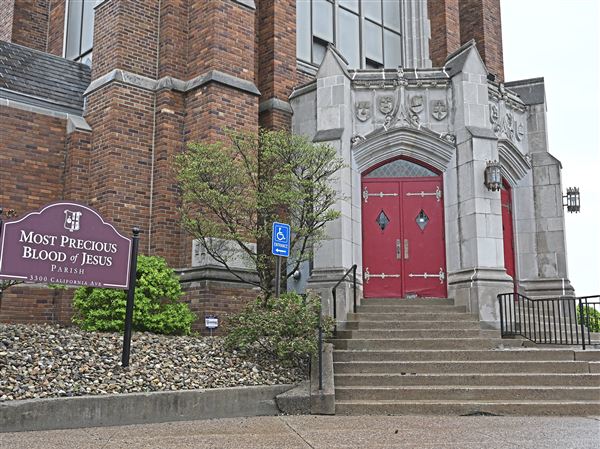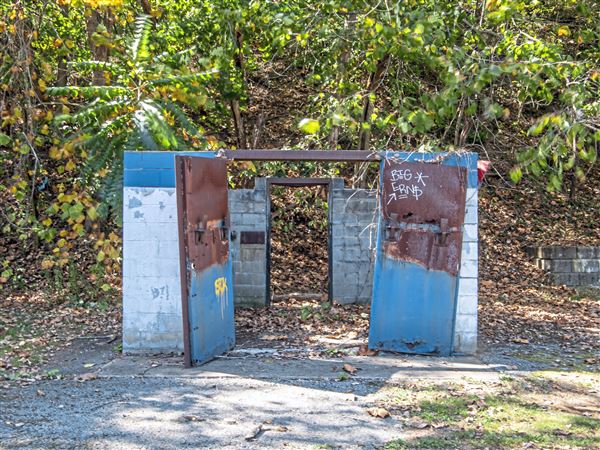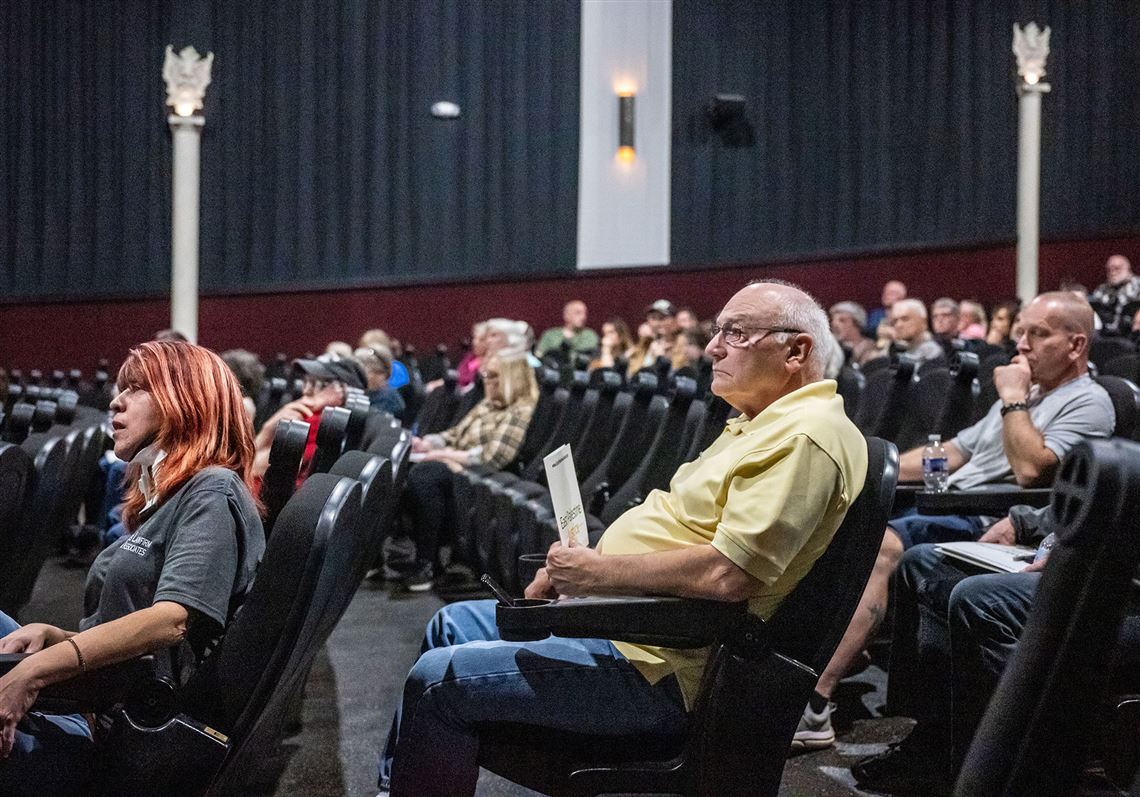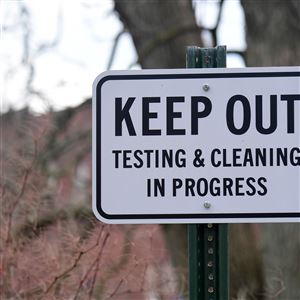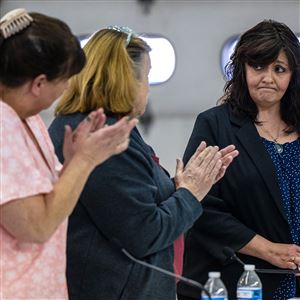East Palestine residents Laura Mann, 62, and her daughter, Shannon, 43, could be part of the largest railroad settlement in U.S. history. But they aren’t so sure they will take the money.
Living just a few streets down from the fiery Feb. 3, 2023, derailment, they want to know how much their checks will be. They also wonder about their legal rights down the road, knowing that those will be gone if they opt to take payment from the proposed historic settlement.
“Well, we’ll put it this way — we’re waiting to see what the numbers are,” Ms. Laura Mann said, outside Columbiana’s Main Street Theatre.
East Palestine Justice — a team of attorneys, environmental activists, and scientific and medical experts representing community members — held a meeting Monday following the announcement that Norfolk Southern has agreed to settle the class-action claims against it for $600 million. Although many of the settlement details remain to be determined, attorneys representing over 1,500 plaintiffs in the case took pre-submitted questions about the announcement.
After Mikal Watts’ firm received a flurry of questions about the settlement the day the news broke, Mr. Watts said it became clear that they needed to host an event to distribute information to the residents directly.
“I think we got 984 calls the first day,” he said.
The lawsuit covers claims for those who were present within 20 miles of the derailment, or those who own property within 10 miles of the derailment. In addition to residents and businesses, that can include employees who were in the area for work only.
The court has to approve the settlement before it is finalized, which is not expected to happen until this fall.
When it comes to how much those checks will be, documentation will prove key in determining the money residents receive, according to Mr. Watts.
“Get your proof now,” he said. “Because [the court] won’t take your word for it.”
The town hall meeting didn’t satisfy Laura Mann much, as the answer to a question she submitted remained unclear. It’s something that may make or break her decision to opt in to the settlement. She and her daughter lived in a hotel in Chippewa until the instability was too much. They came back home by Thanksgiving.
“I got reimbursement for my hotel room — are they taking that out of my settlement?” she asked.
The attorneys told attendees that Norfolk Southern is not going to get a credit for the money that they’ve already paid out to the community.
But if an individual person in the class action received payment from the company, that money will be redistributed out to the community instead, explained Seth Katz, a Colorado-based attorney for Burg Simpson Eldredge Hersh & Jardine.
“I think everyone would consider that fair,” Mr. Katz said. “If you received $1 already from the community center from Norfolk Southern, you’re not to receive that same dollar twice.”
To help residents navigate the claims process, which will not begin until a judge approves the settlement agreement, an on-site claims center will open in East Palestine, staffed by a third-party claims administrator. Norfolk Southern representatives will not be there, the attorneys said, and the company has no say over the way the money is distributed.
Payment for claims in the class action relate to loss in property value, emotional distress, lost wages and the cost of medical exams and tests in the future.
Those who live within 10 miles of the derailment are eligible for a separate personal injury program. This is not part of the class settlement, but rather an opportunity for those closest to the site to receive additional compensation.
The catch, though, is that opting in requires releasing any past, present or future personal injury claims against the railroad company.
For those worried about their legal rights, Mr. Watts said there is, somewhat, a way to “have your cake and eat it too.” People can take part in the property damage class to pay for home cleanup and opt out of the personal injury program to preserve their right to sue later, he said.
But Mr. Katz says they know that any amount of money can’t undo the damage done.
“I understand that everybody in this room, given the choice of getting a check or having their life restored to how it was on February 2 or the morning of February 3, people would rather have their life restored,” he said. “Don’t think that escapes us. Don’t think we don’t understand that.”
First Published: April 16, 2024, 1:11 a.m.
Updated: April 16, 2024, 5:39 p.m.
